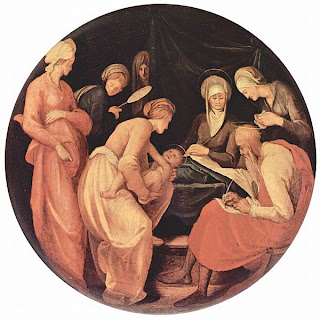Periodically, from time to time I come across great homilies from outside sources. Today I would like to share the work of Jesuit Father Chris Collins:
The gracious act of Christ, emptying himself for us.In the liturgy today, we are given a word from the Book of Wisdom that faces, head on, the ultimate human question of death, and God’s relationship to it. The response could not be more blunt: “God did not make death.” What God does is create. He makes life and offers love that makes “life worth living,” as Bishop Sheen so famously put it. God: “fashioned all things that they might have being” and has formed us to be “imperishable.” That is God’s plan. Period.
Of course, there is death and destruction of being all around us. Where is God? What is His response? St. Paul gives us a clue in the second reading. He urges the Corinthians that while they excel in faith, discourse, knowledge and love, that they might also excel in “this gracious act also.” What is the gracious act? “This gracious act” must be getting close to the core of what makes all the difference in our Christian vision. Indeed it is the core. St. Paul immediately describes the “gracious act” initiated by Christ that “though he was rich, he became poor for our sakes.” The gracious act is God’s own free choice to let go, as it were, of the richness of his divinity and empty himself, becoming a slave, taking on human flesh for those of us who are threatened by sin and death.
By looking at the person of Jesus, we see the power of God going out from himself—out from his transcendence, so that he can be close to his people, close to the broken-hearted, close to the poor, the small, the weak. That’s what God does. In the person of Jesus, we see a glimpse of that same power of God, that has nothing to do with death, and everything to do with life. In today’s Gospel, while responding in the affirmative to the plea to go to heal the daughter of Jairus, Jesus shows his instinctive desire to bring life. While he is on his way to Jairus’ house, another encounter happens that reveals the same truth about the power of God’s life flowing through Jesus. It is unique among the Gospel accounts of Jesus’ encounters with the sick, the blind, and the lame.
As the woman suffering with the hemorrhages makes a desperate attempt to reach out to touch Jesus’ cloak, she has a single-hearted desire for healing to come to her from one she believes has that power. Her weakness meets Jesus’ power, and in that meeting, a transformation occurs. St. Mark describes the unusual nature of the healing: “Jesus, aware at once that power had gone out from him” looks around to find out who had received that power of life and healing. He seeks to personalize what had happened in an apparently automatic manner. “The woman, realizing what had happened to her…” then sought to approach Jesus, though she did so with “fear and trembling.” Both Jesus and the woman seek to make personal the encounter that had happened unconsciously. Upon their face-to-face meeting, Jesus confirms her not only as a person who has been healed, but as one who has been given a renewed identity: “Daughter, your faith has saved you.” Not only does Jesus overcome the chasm of isolation she experienced as one who is suffering, but he draws her into a new identity, as a beloved daughter of his Father. Not only is her “being” refashioned, as the Book of Wisdom describes it, but a new identity is given her.
This is to be the pattern of the Church, also. We are to, first, be the beneficiaries of Christ’s gracious act: he empties himself, becoming one with us so that we might become one with him in eternity. Once we have received this “gracious act” of Christ, we in turn, as members of his body, are to perform that gracious act ourselves in the world around us. A question for us today might be: how prepared am I to let go of my riches, becoming poor for the sake of those in need? How might I take part in the “gracious act” of Christ’s self-emptying love for the sake of people like us who don’t seem to deserve it?





